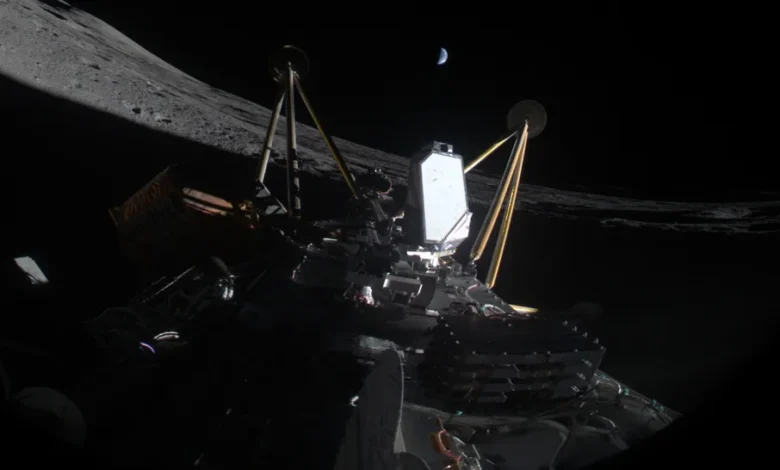NASA disappointed with the result: a private module died on the moon 12 hours after landing

The second attempt to land on the moon, made by the Texas company Intuitive Machines, ended in the same way as the first – the lunar lander Athena flipped on its side in a crater and failed 12 hours after landing. This was reported by the publication Live Science.
NASA, which partnered with Intuitive Machines as part of the Commercial Lunar Payload Services (CLPS) program to deliver scientific equipment to the moon, is disappointed with the outcome. She confirmed that the spacecraft stopped working on Friday, March 7, when its battery was completely depleted. It happened 12 hours after the failed landing.
Before the system shut down, Athena’s onboard instruments managed to transmit about 250 megabytes of data to Earth. Among them is a photograph that shows the module’s two landing struts pointing upwards, as well as a partially illuminated Earth hanging in the distance. The lander officially touched down on March 6 at 12:30 p.m. Eastern Time (EST), but ceased functioning as early as 1:15 a.m. on March 7. In addition, the device landed 400 meters from the planned location in the area of the South Pole of the Moon.
NASA acknowledged the failure of the mission, but emphasized the importance of supporting private companies that are trying to carry out the difficult task of landing and operating vehicles on the moon.
“While we are disappointed with the outcome of the IM-2 mission, we continue to support our commercial partners in their efforts to meet the complex challenges of lunar missions.” said Joel Kearns, deputy administrator for research in the Science Mission Directorate at NASA.
We will remind, for the company Intuitive Machines this is already the second attempt to land on the moon in the last two years. The first mission was more successful – on February 22, 2024, the company landed the Odysseus spacecraft, which became the first American spacecraft to reach the surface of the Moon since the Apollo 17 mission in 1972.
Despite technical difficulties and setbacks, private space companies continue to play a growing role in lunar exploration, and NASA plans to continue to involve them in new missions.





